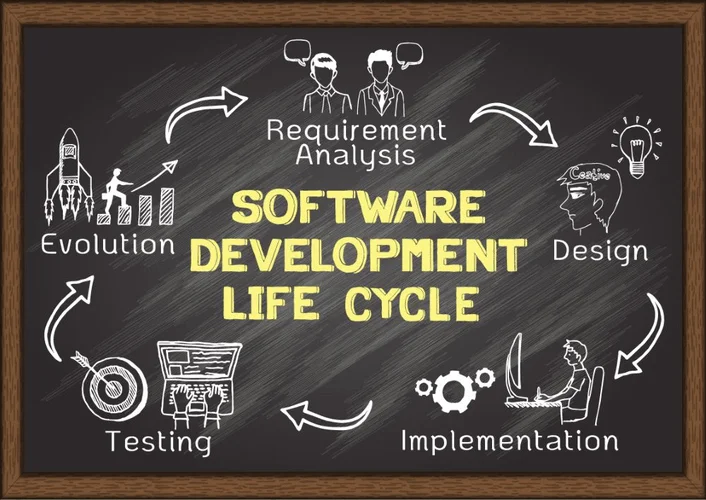The first step in FDD is to create a high-level mannequin of the software system. This model serves as a basis for the visual illustration feature driven development of the system and helps information the team via the event course of. The total model should embrace the principle parts of the software, their relationships, and the key functionalities they supply.
How Is Fdd Totally Different From Scrum?
In 1997, Jeff De Luca was working as a member of a 50-person team on a 15-month software program development project in Singapore. In an effort to assist the development staff be more adaptive and aware of customer needs, he devised a growth model that makes use of 5 steps that focus on growing features in short iterations. FDD is a very useful process for ensuring that every step of your project is accomplished on time and that your last products meet customers’ expectations. Its concentrate on small steps helps builders ensure their tasks are completed as precisely as attainable and inside an affordable https://www.globalcloudteam.com/ timeframe. Feature-driven growth (FDD) is an Agile software program development framework that organizes work around product options.
Do You Have To Use Function Driven Development?
The source code remains to be valued, but the model is valued extra, and it is a far more visible way of communicating system information to more than just programmers. The function record tells the builders what options have to be developed. After the creation of the feature listing; the event manager will create the plan for the options that need work. Finally, the staff begins constructing the software program, one function at a time. Each feature is developed, tested, and integrated into the system incrementally. This strategy allows for rapid suggestions and changes as needed, ensuring the highest high quality output.
Advantages And Drawbacks Of Fdd:

Feature Driven Development locations a excessive dependency on a chief programmer who must act as a coordinator, leads, designer, and mentor to new group members. Feature Driven Development doesn’t present written documentation to the proprietor, though staff members document data in project development cycles. It’s best for projects the place priorities change often and random tasks may seem at any time. A class owner is any developer liable for designing, coding, testing, and documenting a category that implements part of the domain object model in code.

Microsoft Project Ideas And Tricks

Software created utilizing FDD is commonly of a better high quality as a end result of this process involves nearer communication between builders, clients, and other stakeholders all through the method. By releasing new features in an incremental fashion, developers can prioritize shopper requests, reply to requests in a timely manner and maintain purchasers happy. To obtain this, developers map out what options they’ll create, break complex requests right into a series of smaller function units after which create a plan for how to complete every goal over time. Feature-driven growth helps to ensure that every feature is absolutely tested, quality-checked, and delivered inside the deadlines set by the group. Additionally, this technique might help teams finances their time and sources higher so that every feature is accomplished in a well timed manner. Feature-driven development is a practical agile strategy appropriate for long-term, complicated initiatives.
How Does Feature-driven Development Evaluate To Scrum?
Some Agile practitioners choose FDD to Scrum because it relies on documentation to speak somewhat than daily meetings, which can be time-consuming. FDD is suitable for large-scale, long-term projects, as it permits groups to handle altering requirements on an ongoing foundation. It’s a different method of getting there, and it is rather agile in the finest way it develops the model, but appears very plan-based in the way it transforms area fashions into source code.

Alex is enthusiastic about entrepreneurship and turning advanced challenges into opportunities. FDD, which stands for Feature-Driven Development, is a framework within the Agile methodology. As the name suggests, it focuses on creating working software with options that fulfill client needs. FDD goals to make sure common and on-time delivery to clients, according to the values and rules of the Agile Manifesto. If you work at a big firm and might be tackling massive, complicated processes, utilizing a feature-driven agile strategy may be right for you.
- The primary objective of FDD is to ship high-quality software rapidly by breaking down the event process into small, manageable duties.
- As the name suggests, it focuses on growing working software program with features that satisfy shopper needs.
- Try implementing FDD within your product development teams and ensure to share your results.

In other words, “complete the login process” could be considered a feature within the Feature Driven Development (FDD) methodology. Feature-Driven Development is an iterative software improvement framework that’s suited for delivering additionally advanced large-scale tasks. FDD may be very customer-centered and focuses on delivering functionality. When you make the listing of options to develop, it’s a good idea to create a feature/story map.
This helps preserve give consideration to delivering high-quality options that provide value to the top user. Once the general model is in place, the team should determine the specific features that will make up the software program. A characteristic is a small, useful piece of the system that gives worth to the top user. The function record ought to be organized into logical groupings, or “characteristic units,” primarily based on the components of the overall mannequin.
You may wish to consider using FDD methodology if your project grows too large and complex for smaller scrum teams to effectively deal with the amount of work. This agile feature-driven methodology is well-suited for long-term projects that continually change and add options in regular, predictable iterations. These features are then prioritized, and teams are formed to work on the implementation of every characteristic.